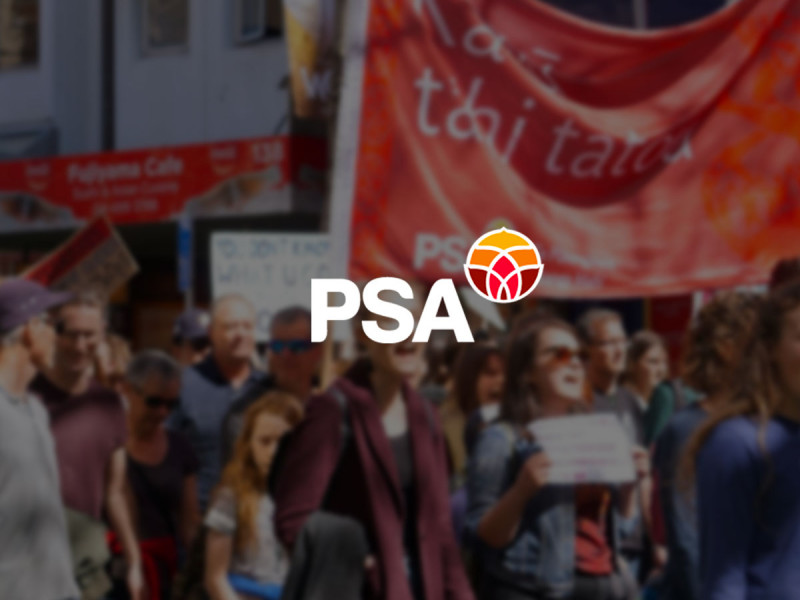Michael Wood, the Minister for Workplace Relations and Safety, announced today that the government will introduce FPA legislation later this year. It is expected to pass in 2022.
"For community and home support workers, cleaners, and security guards, insecure work means a daily challenge. All too often, employers compete for contracts by holding down pay and undermining conditions in an endless race to the bottom," says PSA National Secretary Kerry Davies.
"Industry-wide agreements are common in most developed countries. They provide protection and consistency for workers, not just around pay but also for training and safety. We’re very pleased to see concrete progress toward introducing such sensible policies in New Zealand."
Fair Pay Agreements will make a big difference to workforces the PSA represents, such as home support workers.
Support workers are employed through a fragmented, chaotic system of competing provider companies. The union wants this to be urgently overhauled. The PSA argues Fair Pay Agreements should be viewed as an extension of previous achievements like 2017’s Care and Support Pay Equity Settlement.
Unions and provider companies are now in broad agreement on the need for a fairly paid and well-trained home support workforce with secure, guaranteed hours.
"Implementing a Fair Pay Agreement in the community health sector will make it possible to deliver on promises made years ago. Home support staff deserve consistent, decent conditions like any other health worker," says Ms Davies.
"Support workers protected us from Covid-19 and dozens were infected while doing so. They were essential then, they’re essential now, and they’ll be essential in future."
Fair Pay Agreements do not replace existing employment agreements. Instead, they can be the bedrock from which workers negotiate terms and conditions that go beyond those in particular workplaces.
In the current draft, employees are included but contractors are not. Minister Wood has offered assurances this will be addressed in future amendments to the Act.
Fair Pay Agreements can be initiated by any union which demonstrates support from either ten percent or 1,000 employees in a given industry or occupation.
"It’s important no door is left open for unscrupulous employers to undermine Fair Pay Agreements by engaging contractors on terms below those of employees. If any employer misclassifies employees as contractors to avoid compliance, that employer should face penalties," says Ms Davies.
"Fair Pay Agreements are exciting because not only can they improve working conditions, they can also extend democracy into the workplace. Workers have a right to be involved in making decisions about our lives."
See also: Fair Pay Agreements 'will improve the lives of working New Zealanders'
2019-10-15
Too many New Zealanders endure poor working conditions in jobs that don’t pay enough and offer few opportunities for career progression, and the union movement is calling for change.
The Labour-led government was elected on a platform that included bringing in Fair Pay Agreements to set minimum standards across industries.
The Public Service Association welcomes the CTU Fair Pay Agreement Framework detailing how FPAs will be good for New Zealand, and calls on all parties in the coalition government to come to an agreement on how FPAs can be progressed into law.
"Across the developed world, sector-wide collective bargaining is standard practice. New Zealand currently has an outdated approach that allows some unscrupulous employers to drive down wages and conditions for everyone else," says Kerry Davies, National Secretary of the Public Service Association.
"This is a short-sighted substitute for intelligent business strategy. With rapid technological change set to disrupt our economies, we need employers to stay competitive by instead investing in research, development and training that upskills workers and breaks into new ground."
By setting consistent standards across sectors, Fair Pay Agreements will protect employers who invest in their staff and businesses from being undercut by competitors who simply pay low wages to shore up profits.
Led by former National Prime Minister Jim Bolger, the Fair Pay Agreement Working Group recommended bargaining for FPAs should begin when called for by either 1000 workers or 10% of workers in an industry.
"If we provide working people with a concrete mechanism to vote on how we are paid and treated in the workplace, where we spend most of our lives, it will make democracy real and meaningful to people who may never have felt it was before," says Ms Davies.
"The disappointingly low turnout in recent local body elections suggests many New Zealanders feel disconnected from our democracy, like it isn’t relevant to their lives."









